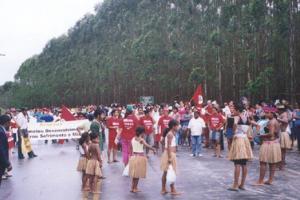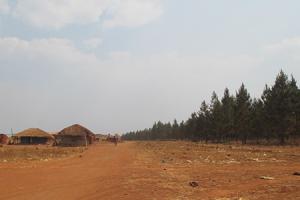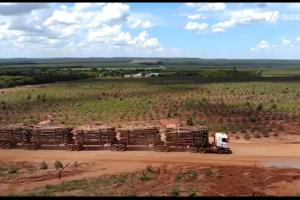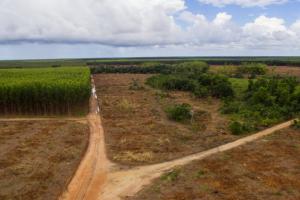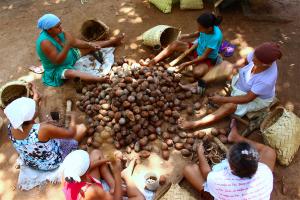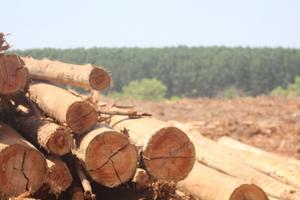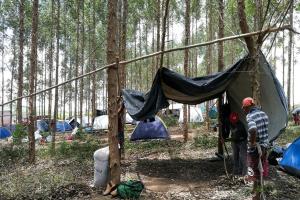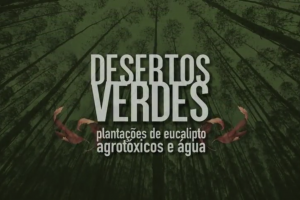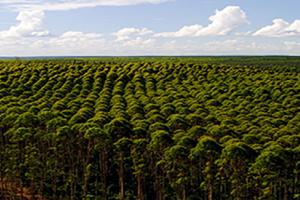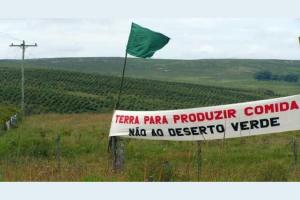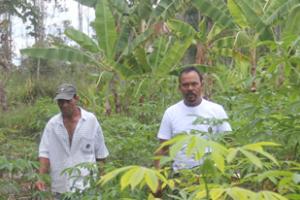Pulp and Paper
Large-scale tree monocultures to produce pulp and paper, along with the infrastructure and pulp mills that come with these plantations, have been expanding onto communities’ fertile lands. They have destroyed forests and grasslands, especially in Latin America, Asia and Southern Africa. The species used are fast-growing and not native to these countries. They include varieties of eucalyptus, acacia and pine trees.
Tupinikim indigenous leaders, in Brazil, share the experience of their people in the struggle against one of the largest eucalyptus plantation and pulp production companies in the world, Aracruz Celulose – currently named Suzano Papel e Celulose.
On the frontlines of the promotion of monoculture tree plantations as a solution to the climate crisis, families affected by tree plantations in Mozambique, Tanzania and Brazil, have once again denounced the serious impacts on their lives and the environment.
(Only available in Portuguese) Confira o vídeo com o posicionamento da comunidade contrária à passagem de caminhões de eucalipto.
This Open Letter is a public reply from the Alert against the Green Desert Network from Brazil and WRM to an email from the investment department of the HSBC bank in the USA, requesting more information regarding the Suzano paper and pulp corporation in Brazil.
The construction of the Suzano Pulp and Paper mill—along with nearby highways, the constant transport of wood, and the massive influx of workers—has brought a lot of devastation to communities. This is the testimony of an activist who is fighting for the territory.
On how pulp and paper companies are expanding in these territories while neutralizing community resistance in a process in which the population ends up economically and symbolically dependent on the companies.
Documentary by Centro de Estudos e Pesquisas para o Desenvolvimento do Extremo Sul da Bahia - CEPEDES, Brazil.
